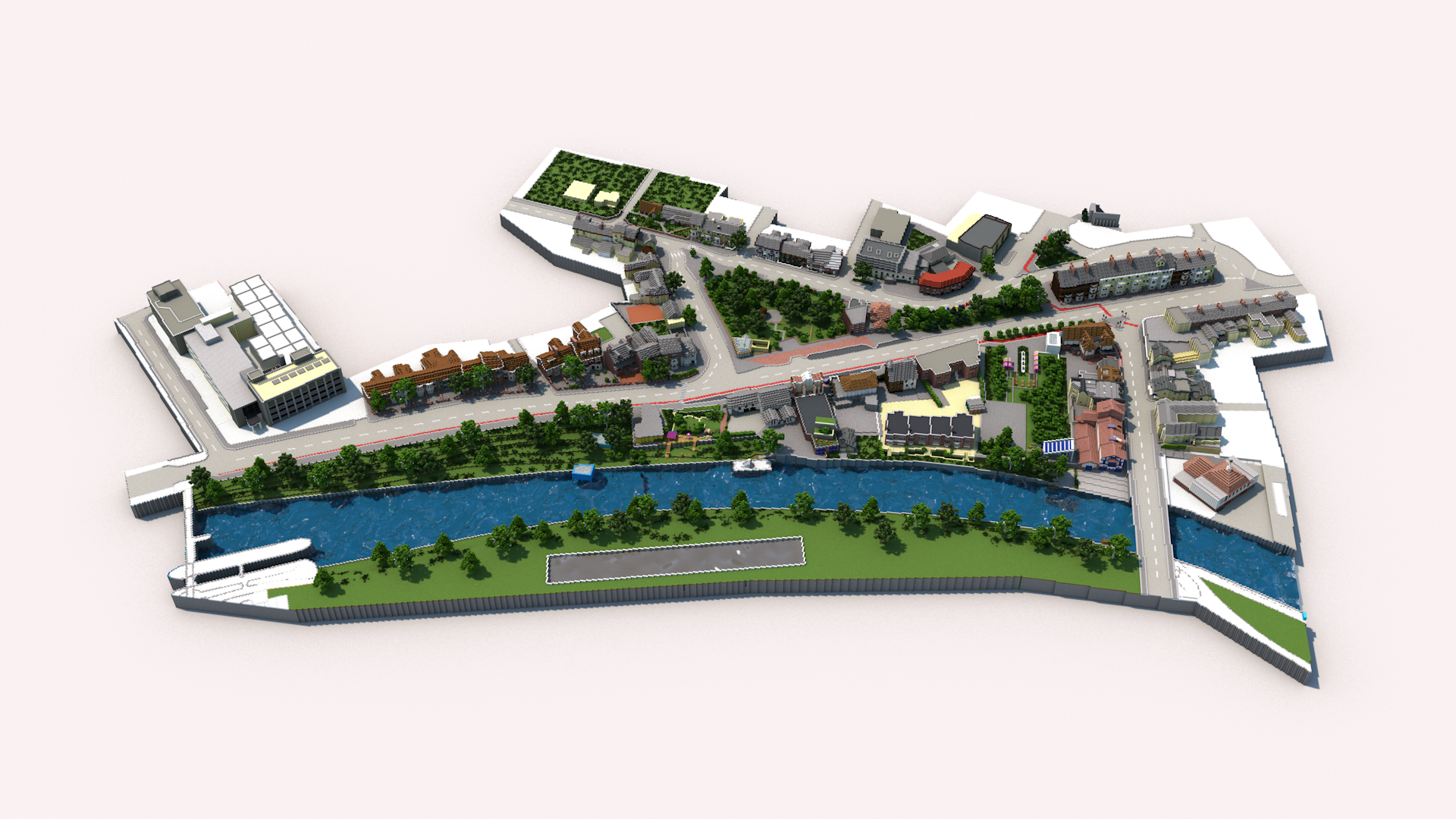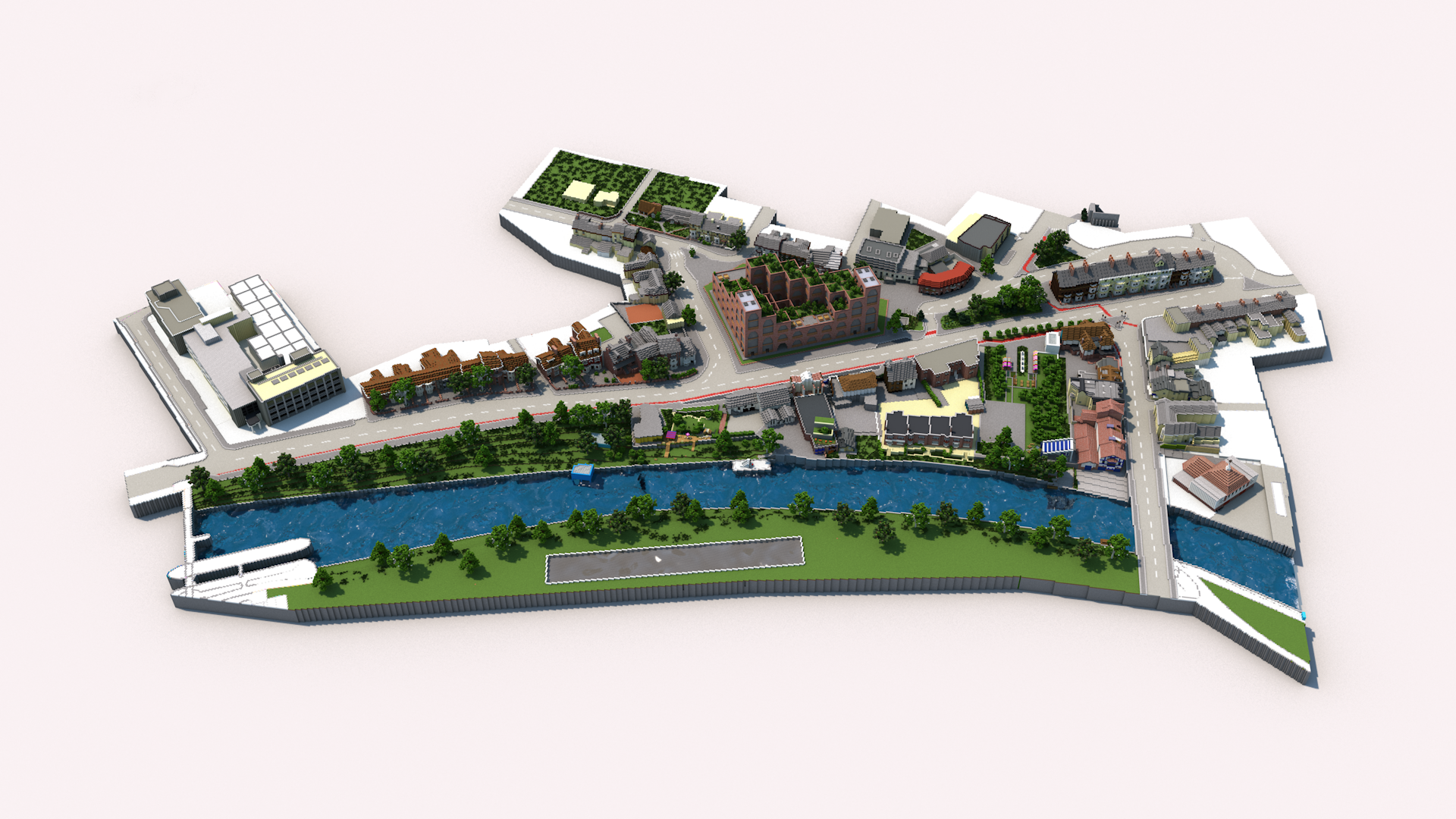Democracy and Urban Design
Minecraft as a Public Participation Tool
University of Cambridge Department of Architecture: Undergraduate Thesis by James Delaney
March 2018
Introduction
Citizen participation in urban design is essential to creating inclusive, sustainable and democratic cities. The creation of public space in particular should involve, at some point, those whom that space will serve, or else it is unlikely to meet their needs and interests. Young people face an additional challenge in this area; they are often under-represented in the planning process, resulting in political alienation as well as the creation of city spaces which do not cater to a younger demographic.
Our cities are growing at an unprecedented rate, as is the proportion of young people in those cities. Additionally, there is a substantial increase in the world population’s access to the internet. By 2030, 60% of the world’s population is forecast to be living in cities – and by the same date 60% of urban dwellers will be under the age of 18 due to rapid population growth, especially in Africa, and despite the ageing trends in high and medium income countries. Access to the internet has also increased dramatically, with 51% of the global population online as of 2017.
In this context, the importance of citizen participation in urban design and governance – and youth participation in particular – cannot be overstated. This dissertation proposes that information and communication technology (ICT), and more specifically the computer game Minecraft, can improve and facilitate engagement by the public in the planning process, unlike the traditional consultation process.
Existing studies of how ICT-based participation tools can be used in this way are limited, and studies of Minecraft’s role in this field are scarcer still. Building on a review of current consultation practice, and available digital solutions for it, this dissertation shall examine why and how Minecraft may provide an answer to the crises faced by citizen participation processes in urban planning, referring to the experience of BlockWorks in this area, as well as the results of three case studies.








